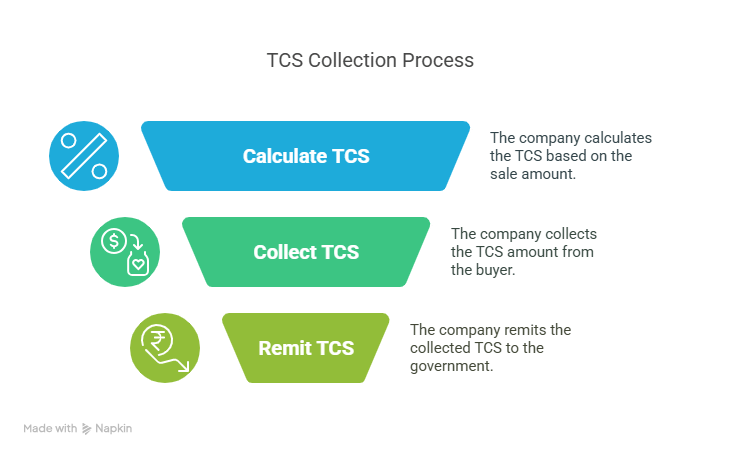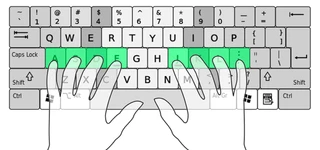As a business owner or working professional in India, you must have come across terms like TDS and TCS (Tax Deducted at Source and Tax Collected at Source). If you’re unsure about the difference between the two, fret not – you are not alone. Many professionals now also use TDS software to streamline the deduction process and ensure accurate tax compliance.
For, as viable taxes collected at the point of origin, TDS and TCS sound similar to even the best of us. However, these serve completely different purposes in the world of taxation and apply in distinct scenarios. While TDS gets deducted from your income before it even reaches you, TCS, on the flip side, is what a seller collects from you at the point of sale.
Wish to get an in-depth comparison of TDS vs TCS and know how each impacts your finances? Read on…
What is TDS?
TDS or Tax Deducted at Source, in simple terms, is when a certain amount of money gets deducted from a person’s income even before they receive it. It is levied by the payer at the time of payment and is then deposited with the government, so tax evasions can be minimized. The payee can claim the deducted amount when filing their income tax return, adjusting it against their total tax liability.
TDS applies to sundry forms of income such as salary, rent, professional fees, commission, and more.

For instance, if an employee earns, say, INR 80,000 per month and the applicable TDS rate is 10%, INR 8,000 will get deducted from his/her salary as TDS and the remaining INR 72,000 will get credited into his/her account.
What is TCS?
TCS or Tax Collected at Source, on the other hand, is when a certain amount of money gets collected from a buyer as tax. It is levied by the seller at the point of sale of specific goods like scrap, timber, forested goods, automobiles, and alcohol, and is then deposited with the government. A buyer can claim the TCS amount as tax credit when filing their tax returns, adjusting it against their total tax liability.

For instance, if a company is selling scrap worth, say, INR 1,00,000 and the applicable TCS rate is 1%, it will collect INR 1,000 from the buyer and remit the same to the government as TCS.
TDS vs TCS: Understanding the Key Differences
Although both TDS and TCS act as certified tax mechanisms aimed at ensuring compliance, the two differ in more ways than one. The differences, especially in how they get collected, are too many to ignore. Keep reading to get a detailed TDS vs TCS comparison…
Who is Responsible for Tax Collection? When it comes to TDS, it is the responsibility of the payer of the income to deduct the tax. The payer, in this case, can be an employer or a bank, basically anyone who pays salary, interest, or professional fees. For TCS, on the contrary, the seller of goods becomes responsible for collecting the tax and depositing it with the government.
Nature of the Transaction: TDS is applicable to a variety of income payments, including salary, commission, interest, rent, professional fees, and more. TCS, conversely, only gets applied to specific transactions related to the sale of certain products like timber, minerals, automobile, alcohol, or scrap.

EasyOFFICE
Starting Price
₹ 2900.00 excl. GST
When is the Tax Deducted or Collected: TDS gets deducted at the time of payment, i.e., when an employer pays salary to an employee. TCS, on the flip side, gets collected at the time of sale, i.e., when a buyer purchases something from a seller.
Rate of Tax: The rate of TDS depends on the type of income in question and the tax laws in place for it. For instance, TDS on salary depends on an individual’s tax slab, while TDS on interest has a fixed rate. The rate of TCS, in contrast, depends on the type of goods sold. For instance, the TCS rate for alcohol may differ from the TCS rate for the automobile.

Saral TDS
Starting Price
₹ 5640.00 excl. GST
Who Benefits from the Tax Credit: When it comes to TDS, the payee, or the one receiving the income post deduction, benefits from the tax credit. For TCS, on the other hand, the buyer benefits. Both can claim the deducted amount as a tax credit when filing an income tax return.
Tax Filing & Adjustment: The deduction made under TDS gets credited to the payee’s account and can be adjusted against the total tax liability when they file their income tax return quarterly. The tax collected as part of TCS gets credited to the buyer’s account and can be adjusted against their total tax liability when they file their returns quarterly.
Due Date for Payment to the Government: Both TDS and TCS must be deposited with the government before the set due dates. For TDS, the due date is the 7th of every month. TCS, contrarily, should be deposited within the first 10 days of every month
Suggested Read: Top 6 eTDS Return Filing Software in India for Experts
What Happens if You Fail to Deposit TDS and TCS with the Government?
Since both TDS and TCS are the government’s way of collecting taxes on time, any failure to deposit the same can land an individual in great financial trouble. Here’s how…

TDSMAN
Starting Price
₹ 4900.00 excl. GST
Consequences of Failing to Deposit TDS:
- Interest Penalty: If TDS isn’t deposited within the set due date, you will have to pay interest penalty, the rate for which is 1.5% per month or part of the month from the due date until the tax is paid.
- Late Filing Fee: If you happen to file the return late, you will be liable to a pay a late filing fee under Section 234E of the Income Tax Act. It is INR 200 per day of delay, that is to say, it keeps accumulating till the return is filed.
- Penalties: If, as a payer, you miss out on deducting or depositing TDS with the government, you will be liable to pay a penalty of up to twice the amount of the tax that you should have deducted.
- Non-Claim of Tax Credit by Payee: If, as a payee, you forget to deposit TDS with the government, you will not receive tax credit for the amount that was deducted from your income. This will complicate your tax return filing.
Consequences of Failing to Deposit TCS:
- Interest Charges: Similar to TDS, if you forget to deposit TCS within the prescribed due date, you will have to pay an interest penalty. The interest rate is 1.5% per month or part of the month from the due date until the tax is paid.
- Late Filing Fee: If you miss out on depositing TCS on time, you will be liable to pay a late filing fee under Section 234E, which is INR 200 per day.
- Penalties: If, as a seller, you fail to collect or deposit TCS with the government, you will be liable to pay a penalty of up to the amount of TCS that should have been collected. This, in addition to interest and late fees.
- Loss of Tax Credit for Buyer: If, as a seller, you miss the deadline for depositing TCS with the government, the buyer may not be able to claim the tax credit during tax filing. This will cause discrepancies in their tax returns.
Conclusion
Both TDS and TCS, as crucial tax mechanisms in India, aim to make tax compliance and collection easy for the government. However, the two vary greatly when it comes to how they function and impact our overall finances.
The primary difference between TDS and TCS, as stated earlier, lies in who collects the tax (payer vs seller), the nature of the transaction made (income payments vs sales of goods), and when the tax is deducted or collected (at the time of payment vs at the time of sale).
For businesses or working professionals to thus have a clear understanding of TDS vs TCS is extremely vital. This, so they can avoid penalties and spare government the trouble of tax evasions.
Yashika Aneja is a Senior Content Writer at Techjockey, with over 5 years of experience in content creation and management. From writing about normal everyday affairs to profound fact-based stories on wide-ranging themes, including environment, technology, education, politics, social media, travel, lifestyle so on and so forth, she... Read more





























